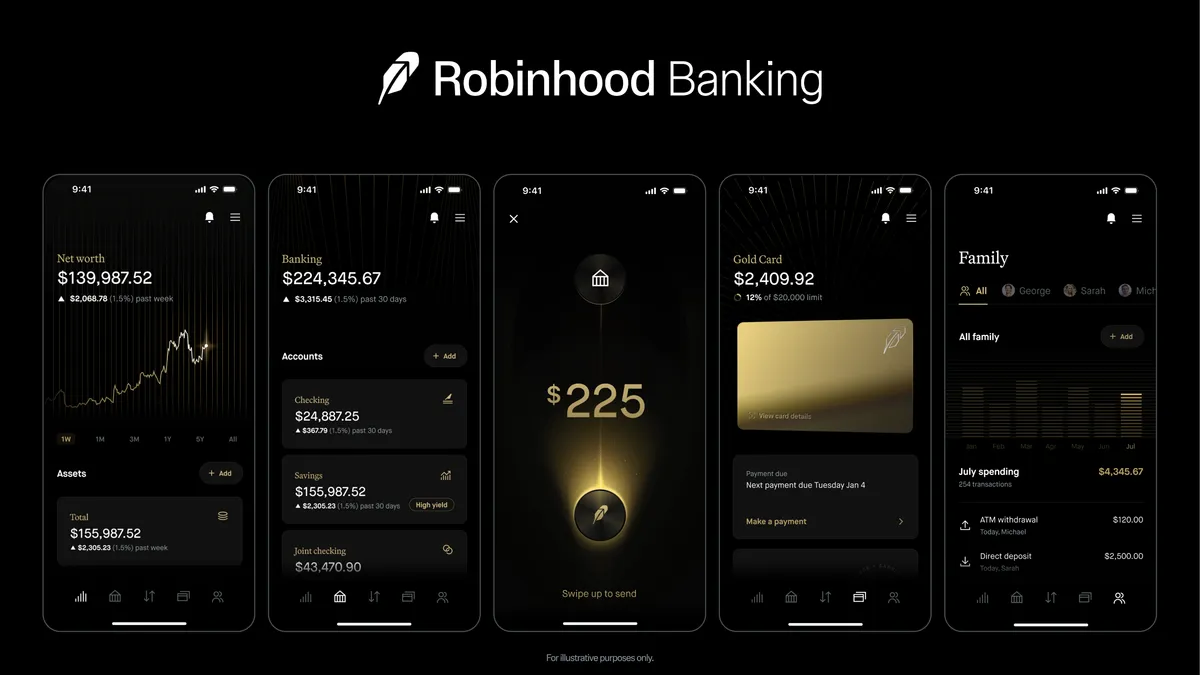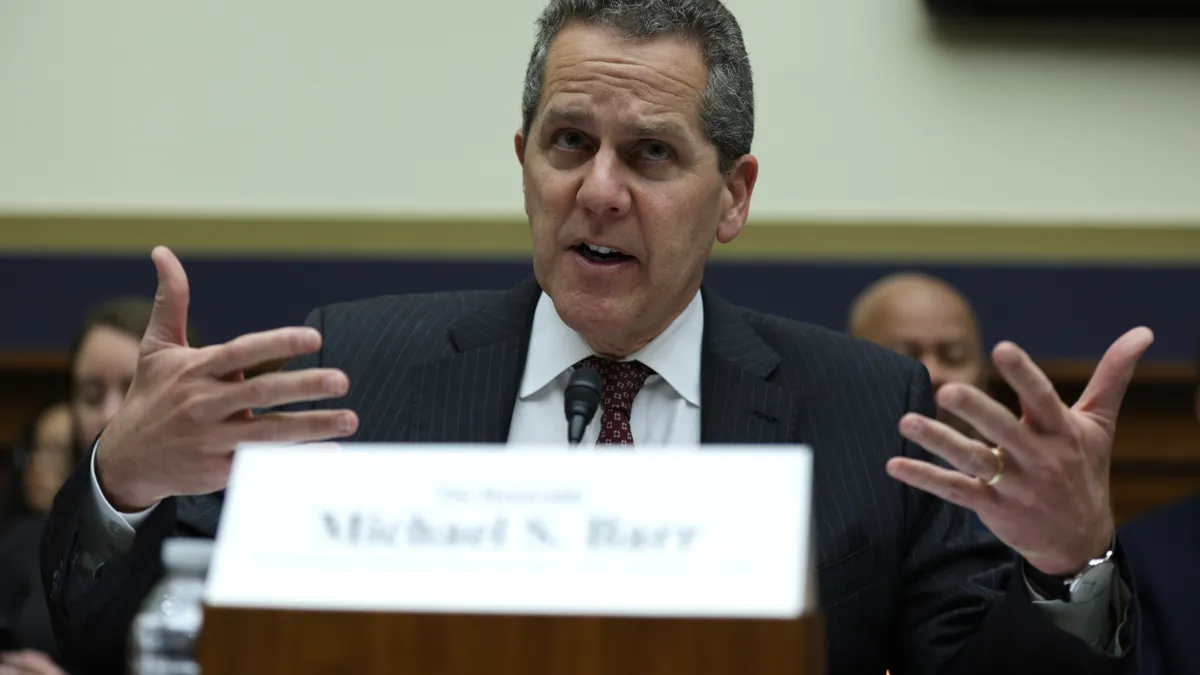Stock trading platform Robinhood seeks to dive deeper into financial services with the launch of a banking product later this year.
Robinhood Banking, set to be rolled out this fall, will offer checking and savings accounts for its gold members featuring services that aim to solve some of the challenges with legacy bank accounts, said Deepak Rao, vice president and general manager of Robinhood Money.
“We want to have the full wallet share with customers,” Rao told Banking Dive, “but we wanted to do it in our style and make sure that we build something that's no longer reserved for ultra-wealthy individuals.”
While announcing the banking product last week, Vlad Tenev, chairman and CEO of Robinhood, also said the firm is adding two other new features, Robinhood Strategies and Cortex.
Strategies is an advanced investing service that offers expert-managed goal-aligned portfolios and personalized insights with a cost cap of $250 per year for gold members and no management fees on amounts over $100K.
Cortex is an upcoming artificial investment tool that will provide real-time market analysis, investment opportunity identification, and market news updates.
Robinhood’s credit card, rolled out last year, has around 200,000 cardholders and 3 million people on the waitlist. Following that, the fintech wanted to build an accessible product that members would use to invest and manage their wealth and handle all of their financial transactions.
“Bank account is still, by far, the center of gravity of most financial transactions,” Rao noted.
The Menlo Park, California-based fintech aims to bring a “private banking experience” to its members, including offering the option to apply for a bank account from the app, send money across the world in over 100 currencies and access private banking services like estate planning and professional tax advice.
Robinhood’s new feature of getting cash delivered to the doorstep physically within an hour will be a differentiating factor and eliminate the need for an ATM, Rao asserts, since bigger banks typically take several days to give money.
The fintech plans to have an app dashboard where a customer can get a money order and have it sent to a recipient or order foreign currency to be delivered to their doorstep, the executive added.
He said the banking product will be available to current Robinhood gold customers.
Robinhood is offering a 4% annual percentage rate on savings and up to $2.5 million in Federal Deposit Insurance Corp. insurance.
The fintech has partnered with Coastal Community Bank to offer its banking products. The lender has recently teamed up with fintechs like Dave to facilitate their banking services.
Robinhood, which has nearly $200 billion in assets under custody, will use the same security system it uses now to ensure the safety of its customer money, according to Rao.
Robinhood eventually wants the banking product to reach worldwide, but first he wants to figure out the best way to pursue what he sees as missing from it — like personal loans, mortgages or home equity lines of credit.
The banking app can help members get an idea of their entire net worth when they open the app, including their liabilities not on Robinhood’s platform. All liabilities like mortgages, student loans, personal loans, credit card debt, and assets appear on the screen. Members can connect to other accounts through Plaid, Rao said.
This isn’t Robinhood's first venture into banking. In October 2019, the fintech announced plans for a high-yield cash management account — a second attempt after a previous failed launch in December 2018. The fintech's first savings account initiative was halted since it had failed to notify the Securities and Exchange Commission and Securities Investor Protection Corporation before launching. Robinhood announced plans to rebrand the product into a cash management service following regulatory pushback.
In April 2019, Robinhood applied for a bank charter with the Office of the Comptroller of the Currency but chose to withdraw it that December.
Since then, neobanks like Chime, SoFi and Revolut have dominated the fintech space. Chime recently added instant loans to its service.
Rao says he’s not worried about the proliferation of neobanks in the space. He argued that neobanks have failed to gain significant market share from traditional banks because neobanks lack “backward compatibility” with essential banking features, such as physical checks or comprehensive services like bill pay, mortgage payments, and auto payments that traditional banks offer.
“I think they looked too forward without making it backward compatible,” Rao said. “They have done good for a niche segment, but they haven't taken business away from legacy banks; that's where most of their market has stopped.”



















